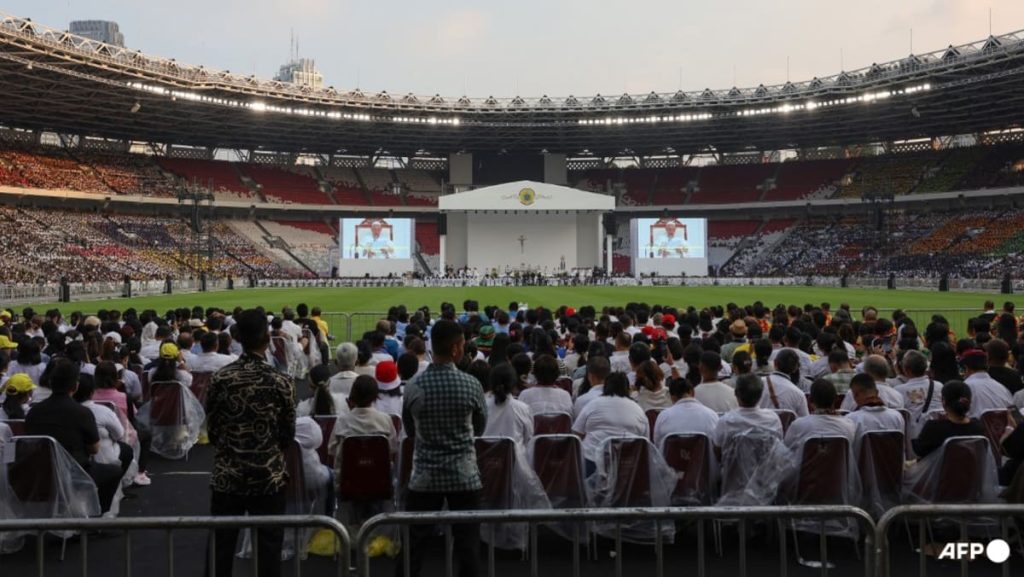During his visit to Indonesia, Pope Francis focused on the theme of unity between faiths, emphasizing the importance of religious harmony for the sake of humanity. At the Istiqlal Mosque, Southeast Asia’s largest, a declaration was signed calling for the promotion and safeguarding of the dignity of every human life. The global phenomenon of dehumanization, often marked by violence and conflict, was addressed by the Pope, who noted the instrumentalization of religion in these issues.
In a speech before leaders of Indonesia’s six recognized religions – Islam, Protestantism, Catholicism, Buddhism, Hinduism, and Confucianism – Pope Francis reiterated the message of unity, stating that all individuals are brothers and pilgrims on their way to God. The visit to the mosque included a welcoming ceremony featuring a percussion band typically used in Islamic ceremonies. During the visit, the Pope and Indonesia’s top Muslim cleric, Grand Imam Nasaruddin Umar, listened to passages from both the Quran and the Bible, showcasing a symbol of interfaith dialogue and cooperation.
The Pope’s emphasis on unity and the promotion of religious harmony comes at a time when the world is grappling with conflicts and violence often fueled by religious differences. By highlighting the commonalities and shared values among different faiths, Pope Francis seeks to encourage cooperation and understanding among religious communities. The symbolic gesture of listening to passages from both the Quran and the Bible emphasizes the importance of dialogue and mutual respect in fostering peace and harmony among diverse religious groups.
The declaration signed at the Istiqlal Mosque reflects Pope Francis’s call for religious leaders to work together in promoting the dignity of every human life. By condemning dehumanization and the instrumentalization of religion in conflicts, the Pope aims to inspire religious communities to actively contribute to peacebuilding efforts. Through his visit to Indonesia and engagement with leaders of various faiths, Pope Francis seeks to promote a message of unity and solidarity in the face of global challenges.
The Pope’s visit to Indonesia serves as a reminder of the power of religion in shaping societal attitudes and contributing to social cohesion. By acknowledging the influence of religion in conflicts and violence, Pope Francis underscores the importance of religious leaders in promoting peace and harmony. The exchange of passages from the Quran and the Bible at the Istiqlal Mosque symbolizes the potential for interfaith dialogue and understanding to bridge divides and foster mutual respect.
As global challenges continue to test the resilience of societies, the Pope’s emphasis on unity and religious harmony offers a beacon of hope for promoting cooperation and understanding among diverse communities. By highlighting the shared values and common goals of different faiths, Pope Francis encourages religious leaders to work together in promoting peace and upholding the dignity of every human being. Through his visit to Indonesia and engagement with leaders of various religions, the Pope demonstrates the importance of interfaith dialogue in addressing the root causes of conflict and violence.


